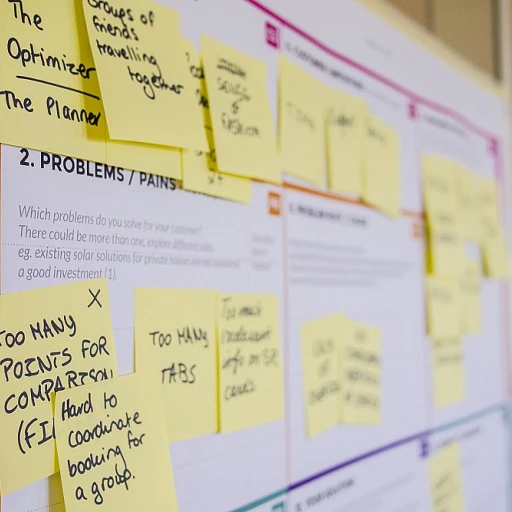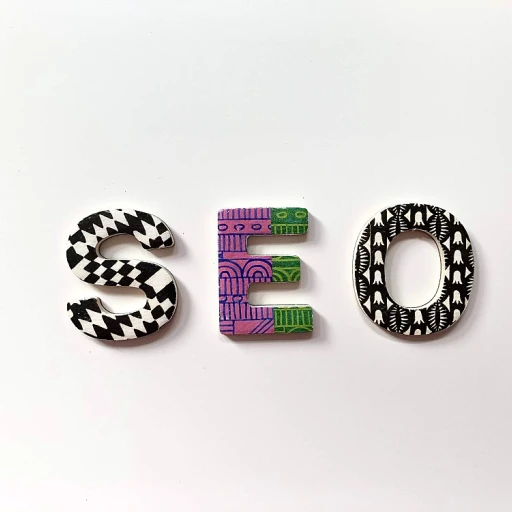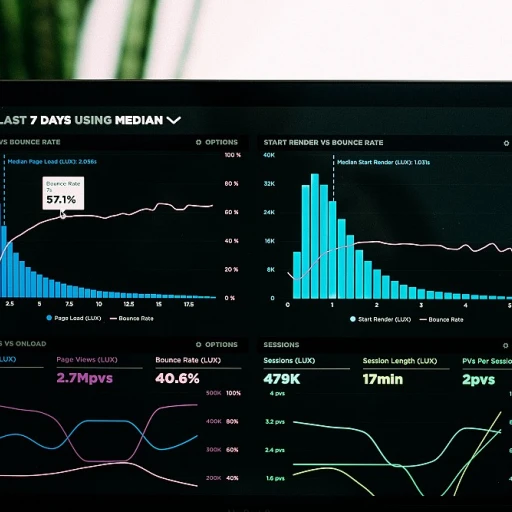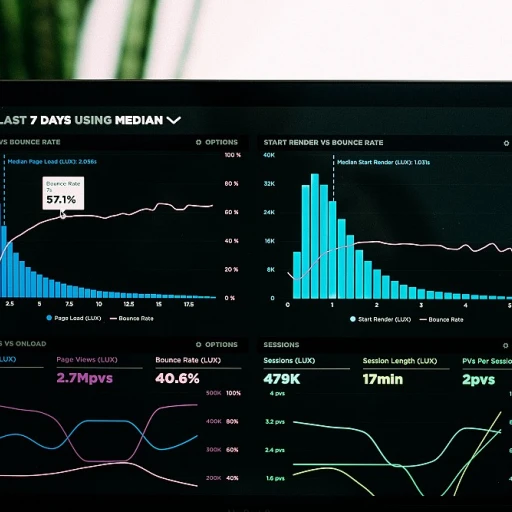Understanding AI's Role in SEO
The Symbiosis of AI and SEO
Artificial intelligence (AI) is revolutionizing the landscape of search engine optimization (SEO) in profound ways, echoing a transformative shift in marketing strategies. The incorporation of AI into SEO systems assists businesses in enhancing their digital marketing, social media, and content marketing efforts, optimizing conversion rates through more nuanced and precise approaches. AI empowers companies to automate and improve their SEO processes through data-driven insights and automated tools, which result in improved audience engagement and more strategic use of paid media.
AI is instrumental in processing extensive datasets efficiently. This capability enables businesses to undertake experiments and testing that were previously too complex or time-consuming. By analyzing user behavior and patterns, AI can suggest the best marketing experiments, such as tweaking subject lines or testing different marketing campaigns, to optimize conversion rates. AI's ability to predict customer behavior further aids in crafting personalized content that enhances customer service and builds audience loyalty.
Marketing experiments are greatly benefited by AI’s precision, allowing for the design of targeted business and marketing strategies that can swiftly adapt to new data and findings. SEO is no longer just about keywords; it's about understanding user intent and delivering tailored content that resonates with people's expectations and needs. This refined approach leads to more effective experimentation in testing various hypotheses about audience preferences and marketing potentials.
Incorporating AI into your SEO strategy is not just about immediate gains. It lays the groundwork for long-term marketing success by focusing on creating value-driven content and optimizing digital marketing initiatives. Companies that effectively integrate AI in their SEO strategy can expect to see improved conversion rates and robust marketing strategies that are responsive to the changing digital landscape.
For those looking to delve deeper into mastering AI applications for SEO, you can explore effective techniques here.
The Power of Experimentation Graphics
The Influence of Visual Experimentation
When diving into the realm of experimentation within marketing strategies, the role of graphics becomes indispensable. Experimentation graphics are a key component in conveying data-driven insights and driving marketing strategies forward. They play a pivotal role in how people understand and engage with results from various marketing experiments.
The best way to begin with experimentation graphics is by understanding their ability to convey complex tests—be it A/B testing, multivariate testing, or any other methodologies used in digital marketing. These graphics enable marketers and their audiences to visually digest and interpret the success or failure of a hypothesis by showcasing clear, comparative data.
Whether it's the design of subject lines for email marketing or the assessment of conversion rates across different platforms, well-crafted graphics can display what words often struggle to articulate. Designing marketing experiments with detailed visualization not only provides clarity but also aids in refining future marketing strategies. Thus, leveraging experimentation graphics is essential for the company eager to optimize its content marketing and paid media efforts.
Collecting Data for Enhanced Insights
Data is at the heart of all marketing experiments. However, the ability to interpret and present this data effectively is what sets companies apart. Utilizing graphics helps in segmenting audiences, identifying business trends, and ultimately improving the outcomes of marketing campaigns.
For example, when analyzing social media experiments or exploring customer service touchpoints, experimentation graphics offer a comprehensive view of the data collected over time. They transform raw numbers into a narrative that can guide decision-making.
By leveraging AI-driven tools for experimentation, businesses can streamline the creation of these graphics, allowing for real-time data presentation and insights. Such an approach doesn't only enhance current marketing strategies but also sets the stage for more innovative content generation.
For a deeper understanding of how experimentation graphics enhance customer success, especially in relation to AI in SEO, you can explore more insights here.
Integrating AI with Experimentation Graphics
Harmonizing Technology with Design
Integrating artificial intelligence in SEO with experimentation graphics requires a deft blend of technology and design. When you put the two together, a powerful synergy emerges that can dramatically enhance content marketing and paid media campaigns. Experimentation graphics allow businesses to visualize data from marketing experiments, fostering an environment where insights into audience behaviors can be effectively leveraged. Experimentation graphics serve as an essential tool for marketers. They provide an intuitive way to interpret complex data derived from marketing experiments, helping teams formulate a hypothesis and track the success of different marketing strategies over time. For instance, by visualizing conversion rates from various campaigns, companies can identify which design marketing elements attract the audience most effectively.Data-Driven Insights in Marketing
AI-enhanced experimentation graphics give companies the ability to conduct precise tests and draw actionable insights. These insights can inform changes in content, email marketing personalization, and social media strategies. By presenting data visually, experimentation graphics help teams rapidly identify winning subject lines or email formats that improve engagement and conversion rates without the guesswork. Furthermore, when AI tools integrate seamlessly with experimentation graphics, businesses can automate much of the analysis process, freeing up time to focus on creating more nuanced marketing strategies. AI leverages the power of historical data, automating pattern recognition to predict how different content marketing elements will perform. This allows marketing strategies to evolve dynamically as new data streams in.Optimizing for Human-Centric Design
Successful integration of AI with experimentation graphics ensures that digital marketing remains audience-focused. Social media and email marketing platforms, for example, become more effective when the content is both relevant and tailored to the user’s preferences. The ultimate goal is to enhance the audience experience, resulting in increased engagement and stronger brand loyalty. Experimentation graphics not only boost the clarity of communication within teams but also serve as a tool for optimizing customer service interactions. By understanding which approaches resonate best with customers, businesses can refine their marketing strategies to align more closely with audience expectations. If you're looking to seamlessly transition AI into your business's SEO strategy, considering existing data frameworks and harnessing audience triggers through AI can provide the competitive edge needed in today's dynamic digital marketing environment.Challenges in AI-Driven SEO
Overcoming Obstacles in AI-Based SEO
Navigating the complexities of AI-driven SEO isn't without its challenges. Companies venturing into AI-enhanced search strategies must be prepared for potential hurdles. While AI provides powerful solutions in experimentation graphics and data analysis, several areas require attention to maximize effectiveness and ensure seamless integration. One of the foremost challenges is data quality and privacy. AI systems rely heavily on vast amounts of data for training and decision-making processes. Ensuring that this data is accurate, clean, and compliant with privacy regulations is vital for achieving meaningful results. Businesses need to establish robust data governance policies and continuously test the integrity of their data sources. Moreover, the diversity of AI algorithms can lead to perplexing choices for marketing strategists. The ability to design marketing strategies that incorporate AI without overwhelming the existing systems is crucial. Understanding which algorithms will best suit a specific business requirement involves continuous learning and experimentation. Additionally, there is a learning curve associated with deploying AI technologies. Companies may need to invest time in training or hiring new staff with the necessary skills to manage AI-driven SEO tools. This investment extends to educating the current workforce about the potential and limitations of AI in digital marketing. The unpredictability of AI outcomes poses another significant challenge. Although AI can enhance marketing experimentation by providing data-driven insights, the variability of these results can sometimes make decision-making less predictable. Marketing teams must remain agile, ready to adapt their strategies based on AI-driven insights, while also considering traditional intuition and expertise. Finally, aligning AI-driven efforts with other marketing components, such as email marketing and social media campaigns, remains a continuous effort. Integrating AI mechanisms effectively requires coordination across various marketing experiments and campaigns, ensuring that each element of the marketing strategy is working harmoniously to achieve the best conversion rates. Ultimately, understanding these challenges will help businesses develop more adaptive, informed, and successful AI-driven SEO strategies, turning potential obstacles into opportunities for growth in the competitive digital landscape.Case Studies: Successful Implementations
Unpacking Successful Implementations in AI-Driven SEO
In the dynamic realm of SEO, several businesses have successfully harnessed the power of artificial intelligence along with experimentation graphics to revolutionize their marketing strategies. By integrating data-rich experimentations and creative design, companies have redefined how they interact with their audience.
Consider the impact of tailored email marketing campaigns. By analyzing data and testing different subject lines, businesses have seen a noticeable increase in conversion rates. This is achieved by formulating a clear hypothesis based on audience insights, then running strategic marketing experiments to find what resonates best.
The use of experimentation graphics also comes into play when designing marketing materials. Through visual test runs, companies can determine the most effective design elements that capture attention and drive engagement in social media and paid media platforms.
Data-driven digital marketing is all about the precise amalgamation of AI and experiments. Some firms have adopted AI tools to refine their content for specific demographics. By tapping into AI for marketing strategy enhancement, organizations can optimize content marketing to meet diverse consumer needs across different channels.
Businesses have also made strides in improving customer service by testing various AI-generated responses. This ensures that consumer interactions are smooth and queries are resolved in the most efficient manner, fostering trust and loyalty.
These cases outline the transformative change that AI and experimentation deliver in the SEO sphere. As this trend continues to evolve, staying ahead with a robust blend of AI and informed marketing experimentation will be crucial for any business aiming for sustained success.
Future Trends in AI and SEO
Anticipating the Next Wave in AI and SEO
The evolution of artificial intelligence in search engine optimization is rapidly steering the future of digital marketing strategies, and businesses that adapt to these changes are likely to stay ahead of the curve. The integration of AI technologies promises to transform how people approach experiments in marketing strategies, offering sophisticated insights and automation that were previously inconceivable.
A significant trend is the application of machine learning models to analyze large datasets. This facilitates the optimization of marketing experiments by predicting outcomes with greater accuracy. As more companies become data-driven, AI can enable precise testing and experimentation, refining marketing strategies to improve conversion rates and enhance customer engagement.
AI-driven email marketing is set to revolutionize how companies craft subject lines and segment audiences, ensuring emails capture the attention of the right people at the right time. This level of personalization will not only boost open rates but also increase conversion rates, proving invaluable in a competitive digital landscape.
Paid media and content marketing are also experiencing seismic shifts due to AI. By employing AI tools, marketers can design more effective campaigns by generating insights that guide decision-making processes, offering a deeper understanding of what kind of content resonates best with their target audience and when to deploy it for maximum impact.
Another emerging trend is the use of AI for real-time experimentation in marketing campaigns. AI's ability to process vast amounts of data quickly enables marketers to run dynamic tests, immediately adjusting strategies to reflect the latest consumer behaviors and preferences. This agility can significantly enhance marketing strategies across various platforms, including social media and digital marketing channels.
Ultimately, the future of AI in SEO will usher in a new era of precise, data-driven marketing that allows for unprecedented levels of audience engagement and satisfaction. The best companies will leverage these technologies to advance their experimentation efforts, ensuring that their marketing strategies are not only effective but also innovative.













